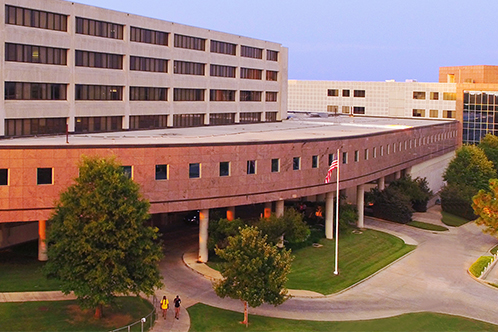- Medical Services
- Gastroenterology
- Screening & Testing
- Colon Cancer Screening

Colon cancer screening at NMHS

Your Resource for Prevention & Early Detection
Colon cancer is the third most common cancer in both men and women in the U.S. However, colon cancer is one of the few cancers that can be detected in its pre-cancerous stage. We can help you get screened.
Colon cancer screening offers the opportunity for prevention and early detection of colon cancer. Since 2021, the U.S. Preventive Services Task Force has recommended:
Starting at 45 for those of average risk
Consideration of early screening for those with a family history of colon cancer
Consideration of early screening for those with forms of inflammatory bowel disease
Screening should continue until age 75 or if life expectancy is less than 10 years.
Common options for screening include colonoscopy, FIT or Stool DNA testing.
Colonoscopy is considered the gold standard for colon cancer screening because it allows for both detection and removal of pre-cancerous polyps. A colonoscopy is a procedure that allows a gastroenterologist or surgeon to use a scope with a camera to look inside the colon. During this procedure, biopsies can be taken and polyps removed. The results of the screening colonoscopy determine the recommendations for future screenings:
If your results show average risk, colonoscopy is recommended every 10 years.
If adenomas or serrated polyps are found, colonoscopy should be repeated sooner.
If symptoms develop between screenings, you may need a colonoscopy sooner.
Where Can I Get a Screening Colonoscopy?
Colonoscopies are performed by physicians at a number of North Mississippi Health Services locations. For more information, call 1-800-THE DESK (1-800-843-3375).
Another colon cancer screening option for those at average risk is the FIT. Short for fecal immunochemical test, FIT can be done at home and detects blood in the stool.
FIT should be performed every year starting at age 45
FIT cannot detect polyps and does not allow for direct visualization of the colon.
FIT cannot allow for biopsies & can miss some cancers
No sedation, bowel prep, dietary modifications or medication restrictions
There is a risk of false-positive results with FIT.
If the test returns positive, then colonoscopy screening is recommended.
Stool DNA testing, which includes tests like Cologuard, is a colon cancer screening option for those at average risk. It can be completed at home and looks for altered DNA in the stool.
Testing should begin at 45; stool DNA tests should be repeated every three years.
Stool DNA tests cannot detect polyps or allow visual exam of colon lining.
Stool DNA tests cannot allow for biopsies & can miss some cancers
No sedation, bowel prep, dietary modifications or medication restrictions
There is a risk of false-positive results with FIT.
If the test returns positive, then colonoscopy screening is recommended.
Related Locations
Patient Stories

'If I Had Waited, it Could Have Been Bad'
Colonoscopy found Kossuth woman’s colon cancer at early, treatable stage

Survivor Advocates for Colon Cancer Screening
Shannon farmer celebrates 10 years as a cancer survivor

'If I Had Waited, it Could Have Been Bad'
Colonoscopy found Kossuth woman’s colon cancer at early, treatable stage

Survivor Advocates for Colon Cancer Screening
Shannon farmer celebrates 10 years as a cancer survivor



